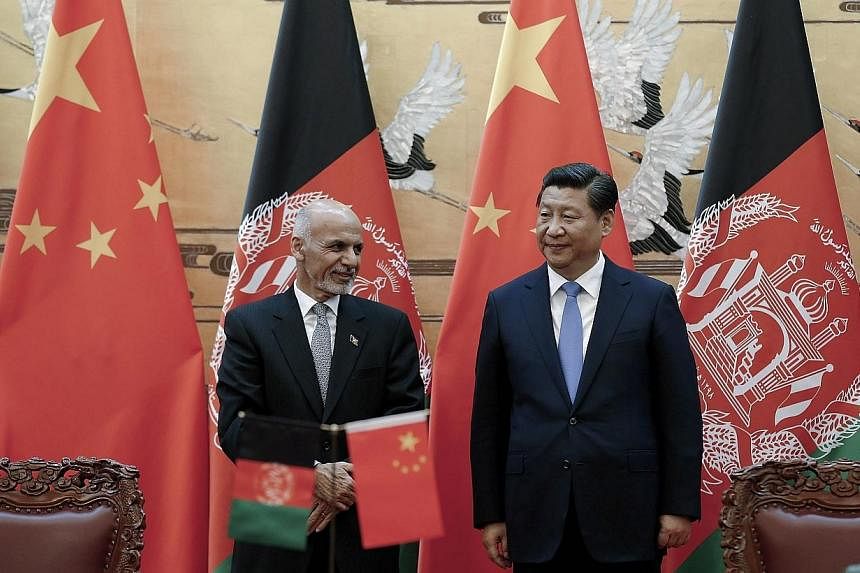BEIJING (Reuters) - Afghanistan's President Ashraf Ghani has pledged to help China fight Islamist extremists, a senior Chinese official said on Tuesday, after Ghani met President Xi Jinping in Beijing on his first visit abroad since his September inauguration.
China, which is connected to Afghanistan by the narrow, almost impassable Wakhan Corridor, says militants seeking to set up a separate state called East Turkistan in its western Xinjiang region are holed up along the ungoverned Afghan-Pakistani border.
Leaders in Beijing, who have been bracing for more responsibility in Afghanistan as the bulk of U.S.-led troops pull out, worry that ethnic Uighur separatists from Xinjiang will take advantage if the country again descends into chaos.
"In the area of security, President Ghani expressed the readiness and staunch support from the Afghan side in China's fight against East Turkistan Islamic Movement terrorist forces," Kong Xuanyou, Director General of the Foreign Ministry's Asian Affairs Department, told journalists after Ghani and Xi met.
Kong said China would give 1.5 billion yuan (S$310 million) in aid to Afghanistan over the next three years and would help train 3,000 Afghan professionals over the next five years.
China says it does not seek to replace the departed Western troops in Afghanistan but has promised to play a "huge" commercial role in helping rebuild the country.
So far, China's commitment to Afghan reconstruction since the fall of the hardline Islamist Taliban regime in 2001 has been around US$250 million and its security support has been mostly limited to counter-narcotics training.
Xi has repeatedly urged Central Asian countries to step up the fight against religious militants, which the Chinese government says were behind a spate of attacks in Xinjiang and across China that have left hundreds dead in the past two years.
Experts, however, dispute the influence of foreign militant groups within China, and argue that economic marginalisation of Muslim Uighurs, who call Xinjiang home, is one of the main causes of ethnic violence there.
Ghani began his four-day trip to China less than a month after being sworn in following a protracted election stalemate.
The Taleban have stepped up attacks ahead of the withdrawal of most foreign troops from Afghanistan at the end of the year, seeking to weaken the new government.
Speaking to Xi at Beijing's Great Hall of the People, Ghani pressed China to open the Wakhan Pass connecting the two countries, a long-held request from Kabul which hopes to see an influx of Chinese development. China has resisted, fearing unrest will spill over into Xinjiang.
Ghani also offered unconditional support on China's own territorial problems, citing "Taiwan, Tibet, and other issues".
On Friday, foreign ministers from Asian and Central Asia countries will gather in Beijing for a fourth round "Istanbul Process" conference on Afghanistan.

